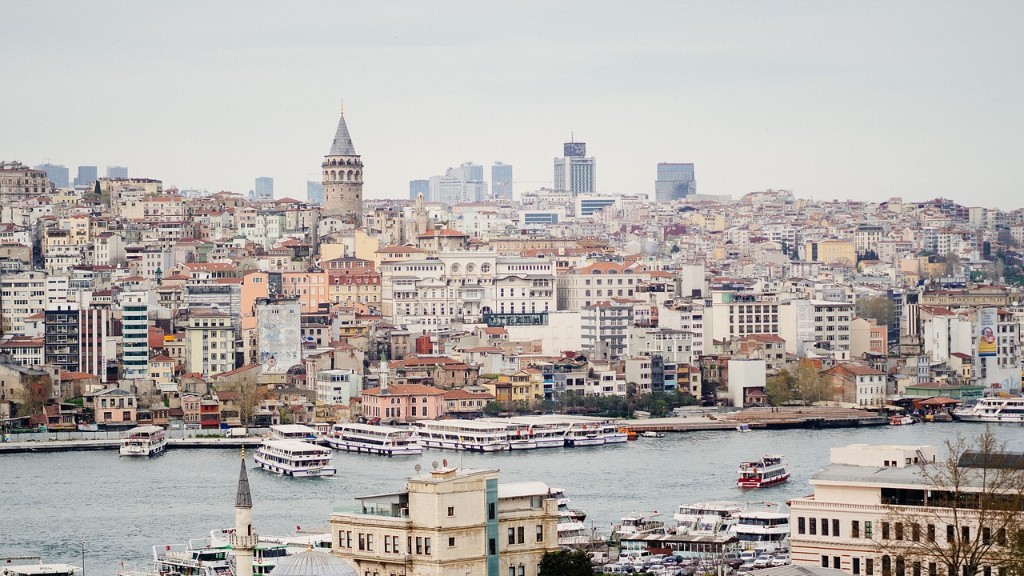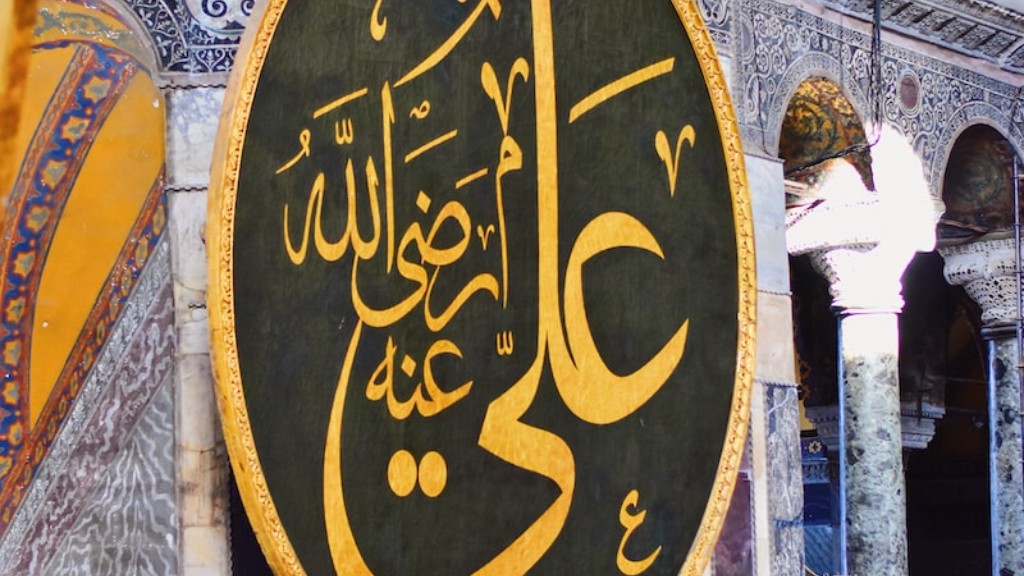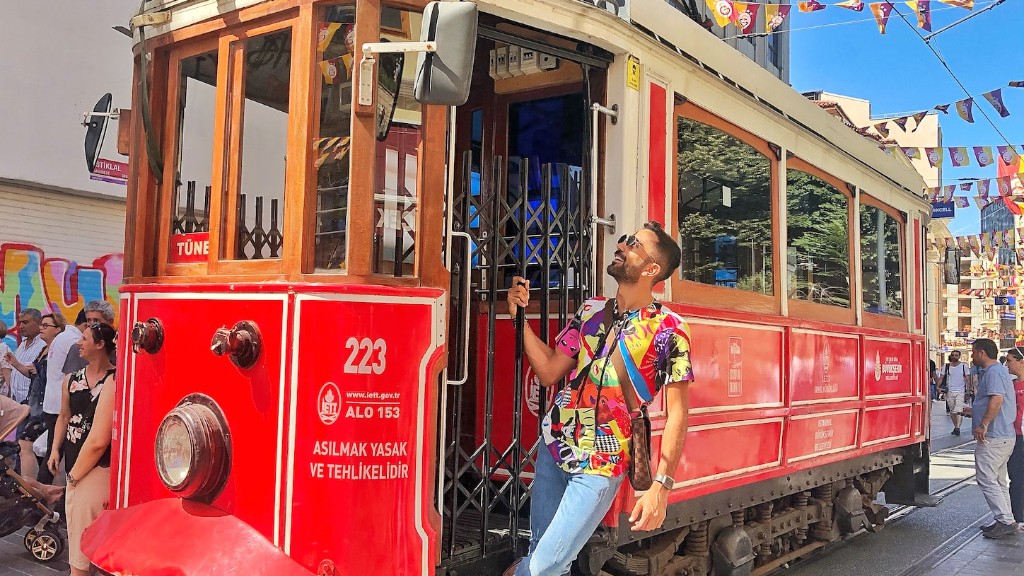What is the language in Istanbul?
Istanbul, the largest city in Turkey, is home to a vibrant culture and population. The language spoken in the city is Turkish, but Istanbul is incredibly diverse and many languages are spoken by its citizens.
Istanbul is located on the Bosphorus Strait between the Sea of Marmara and the Black Sea. It is a major economic, cultural, and industrial hub, with a population of 15 million spanning three continents. This population includes many native speakers of Turkish, as well as minority ethnic and linguistic groups. The cultural mix in the city is so great that it has even coined a unique phrase—”the city of two tongues.”
Turkish, the official language of the country, is widely used throughout the city. However, approximately 10 percent of Istanbul residents are foreign-born migrants, and many of them speak a language other than Turkish. Additionally, of the almost nine million Turkish-speaking residents, only about five million claim to use only Turkish as a first language.
Istanbul has always been home to a huge variety of languages. Over the course of its history, its citizens have spoken Greek, Ottoman Turkish, Armenian, Aramaic, Hebrew, and Arabic, as well as a variety of modern and classical languages. Though few of these languages are currently spoken in the city, their lingering presence is unmistakable and can be seen in the city’s names, architecture, and literature.
English is the most common foreign language spoken in Istanbul. It is widely used in tourism and business, as well as in communication among locals. Other common foreign languages include German, French, Arabic, and some Asian languages. It is estimated that up to 30 different languages are spoken in the city on any given day.
Istanbul is also home to the Istanbul Technical University (ITU), which offers classes in more than 30 languages, ranging from ancient languages like Sanskrit to modern languages like Chinese. The university’s multilingual environment has made it an important center for language and culture. It is also home to some of the most renowned language schools in the country, such as the Istanbul Language and Culture Institute.
Istanbul is a melting pot of cultures, with a unique blend of languages. From Turkish to English to Arabic, its citizens speak a diverse range of languages. Even those who don’t speak the language of the city are welcome to experience its beauty and culture. Istanbul truly is a city of two tongues.
Cultural Influences
Istanbul’s rich history has left a lasting influence on its language. The city has been an important hub for trade since the early days, resulting in a number of regional dialects. It is home to an amalgam of languages, including Turkish, as well as foreign languages like English, German, French, and Arabic.
The city’s “two tongues” moniker refers to the fact that both Turkish and foreign languages are spoken in Istanbul. Its diverse population has been reinforced by immigration over the centuries, resulting in a city that is a melting pot of cultures and traditions.
Culture plays an important role in the development of languages, as it serves as a source of inspiration for words and phrases. The cultures of Istanbul have left an indelible mark on the development of both the Turkish language and the city’s many foreign languages.
These cultural influences have also played a role in the development of the Turkish language itself. Turkish is spoken by the majority of Istanbul’s citizens and holds a unique place in the city’s culture. As a result, the language has developed both regionally and nationally, resulting in an abundance of dialects and expressions unique to the city.
The languages spoken in Istanbul are a reflection of its diversity and culture. From Turkish to English, the city has something to offer for everyone. Its citizens are proud of their rich history and embrace its diversity.
Educational Opportunities
The educational opportunities available in Istanbul are vast. The city is home to a number of respected universities and language schools, offering courses in a range of languages. Istanbul Technical University (ITU), for example, offers classes in more than 30 languages, ranging from ancient languages like Sanskrit to modern languages like Chinese.
The Istanbul Language and Culture Institute (ILCI) is one of the most respected language institutes in the country. It offers courses in a variety of languages, from Turkish to English to French to German. It has several campuses located across the city, making it easy for students to find a suitable course.
Istanbul also has a number of private language schools, which offer courses in a variety of languages. These schools cater to both local and foreign students and offer a range of classes, from beginner to advanced. Students can learn a language from the comfort of their own homes, as many of the schools also offer virtual classes.
Language enthusiasts can also explore Istanbul’s vibrant culture through books and films. The city has a number of bookstores and libraries, as well as cinemas that screen both international and local films.
In addition to the formal language education available in Istanbul, there is also a wealth of informal language exchanges. The city’s diverse population is always eager to share their culture with visitors. By joining a language exchange program or simply striking up a conversation with locals, one can gain insight into the languages and cultures of Istanbul.
Living in Istanbul with a Language Barrier
Living in a city with a language barrier can be daunting, especially if you are new to the city. Fortunately, most people in Istanbul are eager to help, and many are fluent in multiple languages. This makes it easier for visitors to navigate the city and learn the language.
The Istanbul Tourist Office can provide visitors with information about the city and its languages. They offer guides in a number of different languages, as well as information about the city’s cultural and historical attractions.
In addition, there are numerous resources available to help visitors learn the language. The Istanbul Language and Culture Institute offers language courses, as do many private language schools. There are also a number of language exchange programs, which allow participants to learn the language by interacting with native speakers.
Living in Istanbul can be a great opportunity to learn the language and immerse oneself in the city’s culture. By taking advantage of the resources available and interacting with locals, visitors can gain insight into the city’s unique culture and customs.
Learning Turkish
Learning Turkish is essential for navigating the city and its culture. The language is widely spoken in the city and is essential for communicating with locals. Turkish contains many words that are unique to the city, including slang terms and regional dialects.
Learning Turkish is more than just learning words and phrases; it is also about understanding the culture and customs of the city. There are a number of resources available for learning Turkish, including online courses, language apps, and books.
Many of the language schools in Istanbul also offer courses in Turkish. These courses are designed to help students gain insight into the language and its culture. They typically include lessons on grammar, vocabulary, and cultural norms.
It is also possible to learn Turkish through informal language exchanges. Many of the locals in Istanbul are eager to help visitors learn the language, and many of them are fluent in multiple languages. By joining a language exchange program or having conversations with locals, one can gain insight into the city’s unique dialects and customs.
Conclusion
Istanbul is a vibrant city with a unique blend of languages. Turkish is the official language of the country, but many other languages are spoken in the city, including English, German, French, and Arabic. Cultural influences have played an important role in the development of both the Turkish language and the city’s many foreign languages.
The educational opportunities in Istanbul are vast, and there are a number of respected universities and language schools offering courses in a variety of languages. Visitors can also explore the city’s vibrant culture through books and films. Living in Istanbul can be a great opportunity to learn the language and immerse oneself in the city’s culture.
Learning Turkish is essential for navigating the city and its culture. There are a number of resources available for learning Turkish, including online courses, language apps, and books. Additionally, many of the locals are eager to help visitors learn the language.
Istanbul is a vibrant city filled with culture and beauty. Its diverse population has left an indelible mark on the city’s languages, making it one of the most fascinating places to visit and explore.





